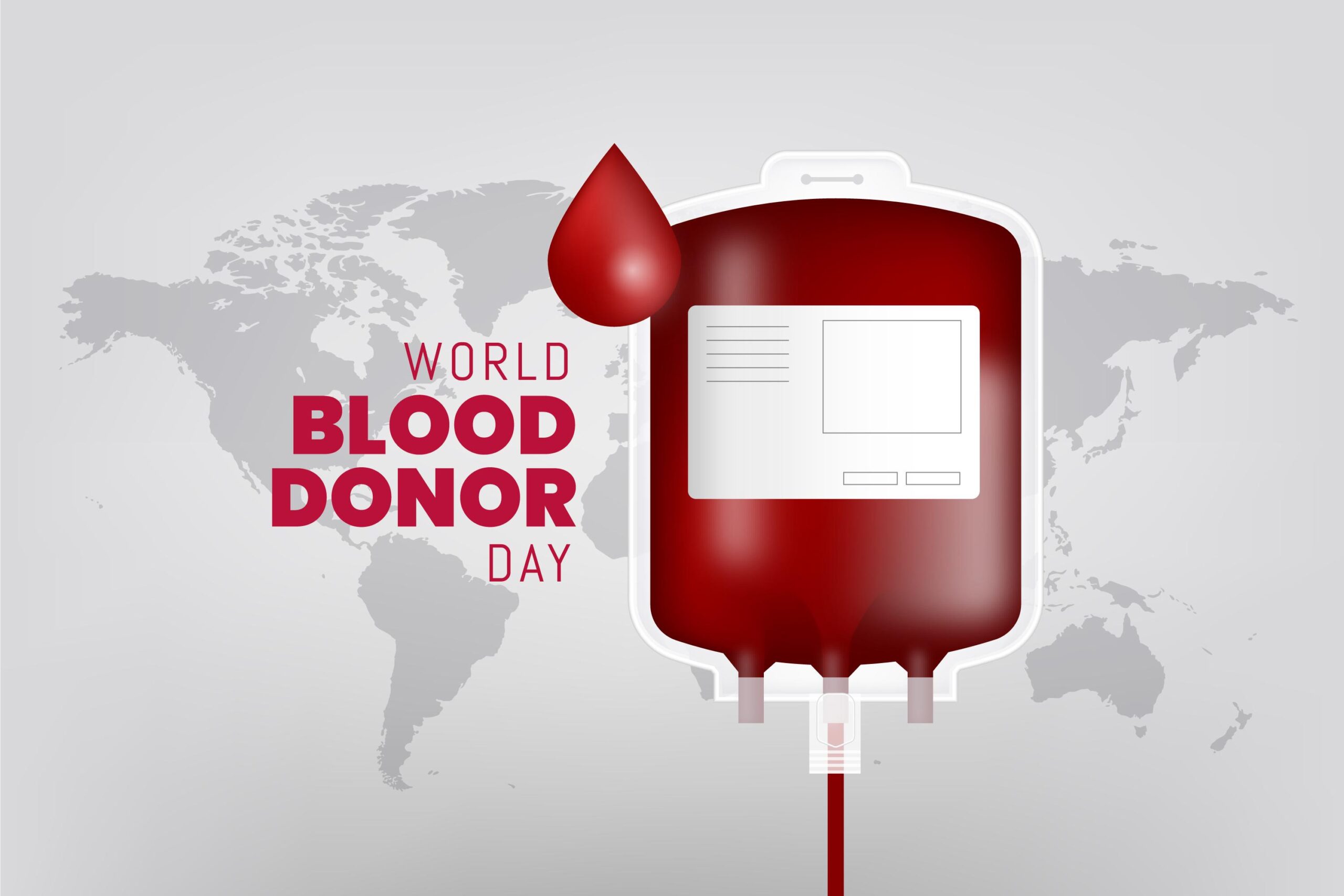As a pediatric hematologist & as a consultant who runs two thalassemia Daycare, 14 June – World Blood Donor Day holds a special significance. It’s a day to celebrate the selfless individuals who donate their blood to save lives and to raise awareness about the need for regular blood donations. Here’s a blog post that you could use to mark this important day:

Celebrating the Gift of Life: World Blood Donor Day
Every year on June 14th, we come together to celebrate World Blood Donor Day, a day dedicated to thanking voluntary, unpaid blood donors for their life-saving gifts of blood. As a pediatric hematologist, I witness firsthand the critical importance of blood donation in saving the lives of children and adults alike. Your 10 mins of Blood donation can change 3 lives. One pint of blood is divided and distributed in packed cell volume, Platelets and plasma.
This year marks the 20th anniversary of World Blood Donor Day, with the theme: “20 years of celebrating giving: thank you blood donors!” It’s a milestone that highlights two decades of global efforts to support and increase blood donations.
Blood donation is a noble act that is used to treat various medical conditions, such as anemia, cancer, and blood loss during surgeries. In the process of blood donation, individuals donate blood to blood banks or organizations that collect blood for transfusion, ensuring a constant supply of healthy blood for the healthcare industry.
The significance of this day goes beyond the act of donating blood; it’s about raising awareness and urging more people to become regular donors. The theme for this year’s World Blood Donor Day emphasizes gratitude towards donors who have been contributing to this cause over the years. It also serves as a call to action to address the ongoing challenges and accelerate progress towards universal access to safe blood transfusion.
As we gear up to celebrate World Blood Donor Day, let’s remember the history that paved the way for modern blood transfusion techniques. It was in 1940 when scientist Richard Lower performed a successful blood transfusion between two dogs, leading to the development of blood donation and transfusion as regular procedures in healthcare.
It has significant benefit on donor too. It definitely decreases risk of cancer, heart diseases. Keeps the bone marrow strong and functional. It also helps in keeping weight at a check.
There are many misconceptions regarding blood donations like patient diabetes and thyroid cannot donate blood. But those myths needed to be busted.
Eligibility of Blood Donors:
Any healthy adult, both male and female, can donate every three months
Good health of the donor must be fully ensured. The universally accepted criteria for donor selection are:
- Age between 18 and 60 years
- Haemoglobin – not less than 12.5 g/Dl
- Pulse – between 50 and 100/minute with no irregularities
- Blood Pressure -Systolic 100-180 mm Hg and Diastolic 50 – 100 mm Hg
- Temperature – Normal (oral temperature not exceeding 37.50C)
- Body weight – not less than 45 Kg
Health conditions: The donor should be in a healthy state of mind and body.
They should fulfill the following criteria:
- Past one year – not been treated for Rabies or received Hepatitis B immune globulin.
- Past six months – not had a tattoo, ear or skin piercing or acupuncture, not received blood or blood products, no serious illness or major surgery, no contact with a person with hepatitis or yellow jaundice.
- Past three months – not donated blood or been treated for Malaria.
- Past one month – had any immunizations.
- Past 48 hours – taken any antibiotics or any other medications (Allopathic or Ayurveda or Sidha or Homeo)
- Past 24 hours – taken alcoholic beverages
- Past 72 hours – had dental work or taken Aspirin
- Present – not suffering from cough, influenza or sore throat, common cold
- Women should not be pregnant or breast feeding her child
- Women donor should not donate during her menstrual cycles
- Free from heart disease or high BP, cancer, blood clotting problem or blood disease, unexplained fever, weight loss, fatigue, night sweats, enlarged lymph nodes in armpits, neck or groin, white patches in the mouth etc.
- Ever had TB, bronchial asthma or allergic disorder, liver disease, kidney disease, fits or fainting, blue or purple spots on the skin or mucous membranes, received human pituitary – growth hormones etc .
On this special day, I encourage everyone to consider becoming a blood donor. Your contribution can make a significant difference in someone’s life. Whether it’s a child battling Thalassemia, leukemia or a mother undergoing a complicated childbirth, your blood donation can be the reason they get to see another day.
Let’s honor the spirit of giving by rolling up our sleeves and donating blood. Together, we can ensure that every patient who needs a transfusion has access to safe blood. Here’s to 20 years of giving, and to many more years of saving lives through the simple yet powerful act of blood donation.

Thank you, blood donors, for your gift of life.
I hope this blog post helps in spreading awareness and encouraging more people for blood Donation. Remember every blood drop counts.
Regards,
Dr. Liza Bulsara
Pediatric Hematoncologist & BMT Physician

